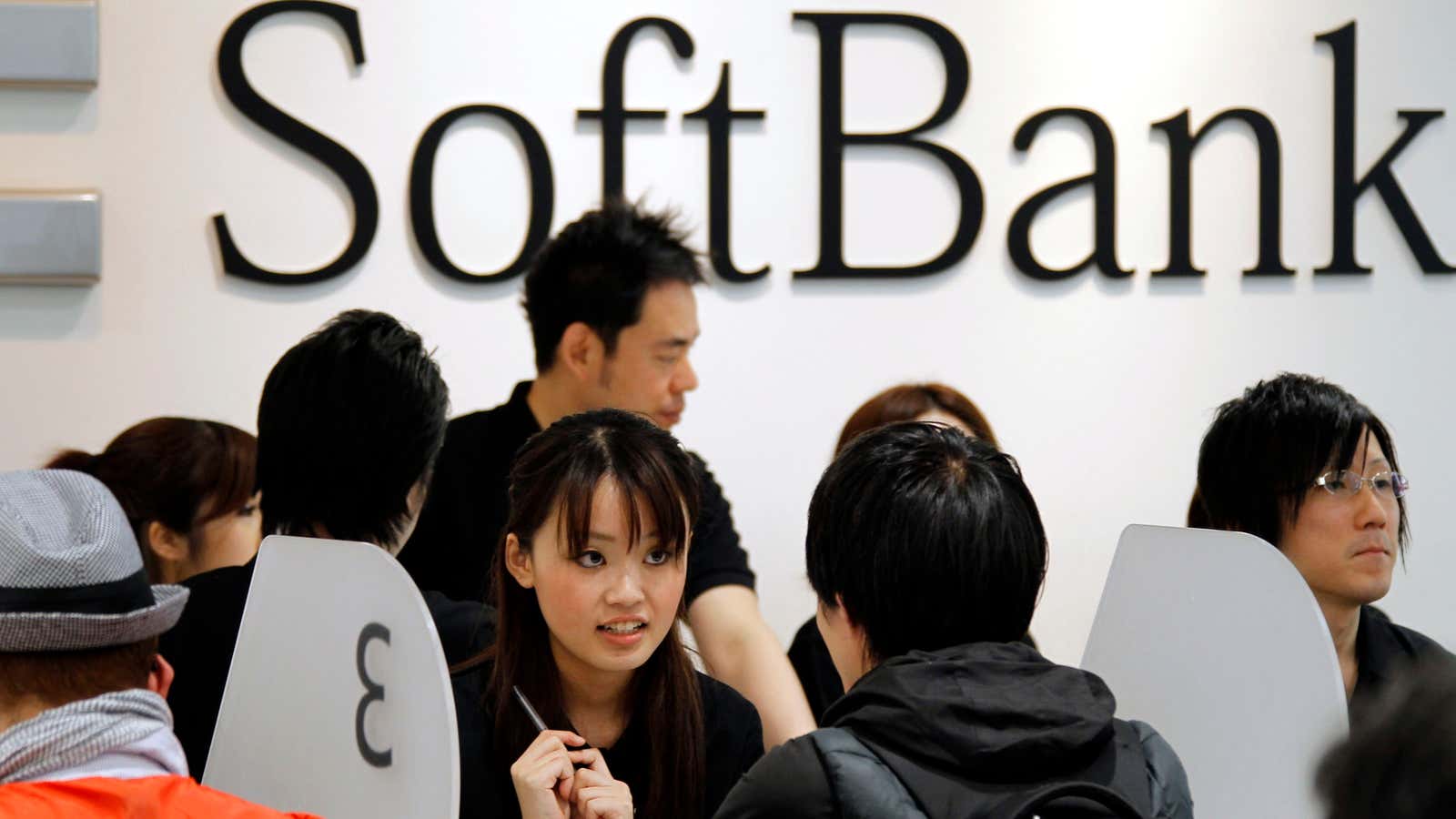The Committee on Foreign Investment in the US (CFIUS), which reviews deals for national security issues, has cleared the way for Japan’s Softbank to acquire US wireless provider Sprint Nextel. Dish Network, Softbank’s rival bidder for Sprint, has been trying to discredit Softbank based on national security concerns. So what will it do next?
Dish stepped up its attacks on Softbank last week, saying its use of equipment made by Chinese firms Huawei and ZTE in Japan could facilitate Chinese spying and hacking in the US. To make its point, Dish created the web site nationalsecuritymatters.com. Its efforts have been gaining traction, with several US senators expressing concerns about the Sprint-Softbank deal.
No doubt Dish’s accusations rang hollow to CFIUS, since Softbank already pledged not to use Huawei and ZTE in the US. What’s more, US company Clearwire, which Sprint partly owns and is trying to fully acquire, already uses Huawei equipment. Softbank has promised to pay $1 billion to remove the equipment if it acquires Sprint, while Dish has declined to publicly say what it would do with the Huawei equipment.
Now that Softbank has CFIUS approval, all it needs is clearance from the US Federal Communications Commission (FCC) and a nod from Sprint shareholders to seal the deal. That’s bad news for Dish, which faces an FCC deadline to buy or build a cellular network. (Buying Sprint would save Dish the trouble of building its own cell network, which is why it’s also been talking with nearly every other US mobile phone company.)
Dish could continue trying to rally politicians, using the 2006 Dubai ports deal controversy (which Dish references in its campaign against Softbank) as its playbook. In that case, members of Congress denounced a deal for state-owned DP World of Dubai to take over terminal operations at six US ports after CFIUS had already approved it. DP World decided to drop the deal. But Japan-based Softbank may not seem as alarming to Congress as a company based in the Arab world.
Dish’s other option is to try to sway Sprint shareholders to vote down the Softbank deal. Sprint investors will be looking at price—Softbank is offering $20.1 billion for a 70% stake in Sprint, while Dish’s offer was valued at around $25.5 billion for the whole company.
The other factor will be deal certainty. Softbank is far along in the government approval process. Dish, on the other hand, could be a long way from gaining FCC approval. Sprint investors will undoubtedly want Softbank to bump its offer, but they might also opt for the quicker deal. If that happens, Dish will have to go back to wooing every other cell phone company in the country.
